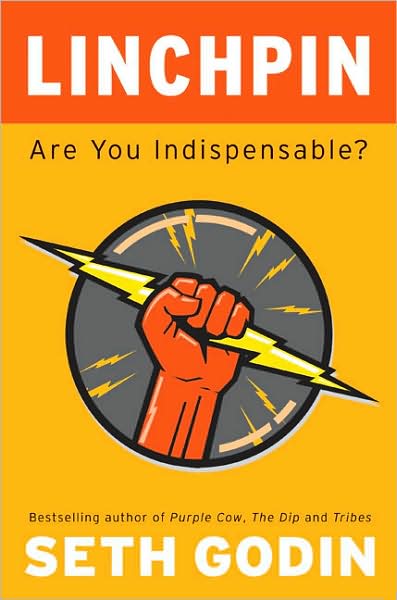Recently, I finished reading this book, Linchpin: Are You Indispensable?, by Seth Godin. It was an
interesting and thought-provoking book and I highly recommend it to anyone. It
is primarily focused on the business world but the ideas put forth can be
applied to any organization, for profit or not. The premise is that you need to
become a Linchpin, someone that isn't just another cog in a wheel that punches
the clock, follows directions, and does the minimum to get the paycheck. The
Linchpin takes chances, stands out from the rest of the workers, makes mistakes, learns from them, and works for himself, not just his boss. Linchpins see
their employer as a customer that they can provide a service to and do so
excellently.
Something that Mr. Godin talks about and has really stuck
with me is the power in giving gifts. He explains a gift as a transaction where
an imbalance is created. When we receive a gift from someone we generally don't
hand them a wad of cash totaling the exact amount it cost them to buy the gift, assuming people actually carried cash still. We say
"Thanks. I love it!" and then we either try to return the favor with
a similarly valued gift, equalizing the scale, or choose to live on with the
scale in our relationship off balance. Choosing the latter can do two things.
One, it usually makes the giver feel good about having given a gift; and two,
it causes you to want to find out why this person gave you a gift, bringing you closer to that person and creating a stronger relationship.
In our culture, it seems like the courteous thing to do is
to return the favor of a gift with another gift. But this "favor"
really defeats the purpose of the gift: to create an imbalance, bringing each
other closer.
Seth says in the book, "If I sell you something, we
exchange items of value. You give me money, I give you stuff, or a service. The
deal is done. We're Even." This is a common transaction we make every day
like purchasing groceries or paying for gas. We generally don't feel obligated
to tip the gas pump an extra couple bucks because it did such a great job,
especially these days! That would be a bit ridiculous since the gas pump gave
us exactly the amount of gas we requested at the agreed upon price per gallon.
We owe nothing to the gas pump.
On the flip side, we will tip the individual providing a
service to us, like a waitress, based on the quality of service they provide.
We tip extra to correct the imbalance that she created when going above and
beyond what was required to serve our meal. Since we probably won't see her again and have no need of
becoming closer to her, we feel the inherent need to correct the imbalance by
providing a larger tip. This makes her
perfectly happy because that's how she makes her living. We leave the
interaction feeling satisfied, she has her money, we are full and well serviced
and will probably be back to the fine establishment. This inadvertently makes
the owner happy because his restaurant will profit from our return business.
All this happiness created by a simple gift that the waitress gave. She is a
Linchpin and Linchpins generally do, and should, make more money because they
offer more to an organization.
Learning about the power of giving gifts is just one of the things
I learned from Mr. Godin's book. I didn't even scratch the surface of detail he
goes into in his book on giving gifts and creating art for others to enjoy. And
how doing this can not only bring happiness to others but to you as well. All I
can say is read it and see for yourself.

No comments:
Post a Comment